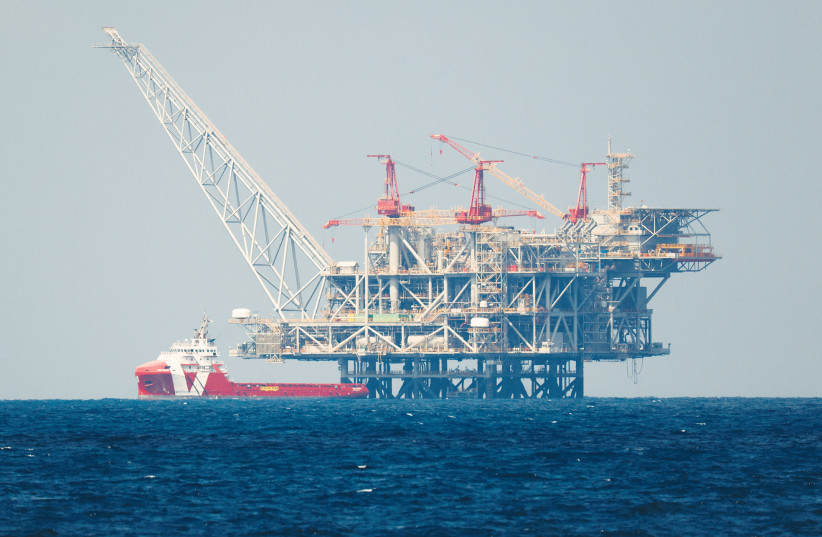Energy Minister Israel Katz decided on Wednesday to approve additional exports of gas from the Tamar reservoir to Egypt, despite the postponement of a meeting between himself, Prime Minister Benjamin Netanyahu, and Finance Minister Bezalel Smotrich because of the security cabinet meeting.
This was on the recommendation of Chen Bar-Yoseph, head of the Fuel Administration in the Energy Ministry, "and after we made certain that the supply of gas to the Israeli economy was assured," Katz said.
Egypt pressured Israel to allow the partners in the Tamar reservoir to raise exports from 11 BCM annually to 16 BCM. The additional exports are based on an Egyptian commitment to increase its purchases of gas by 4 BCM annually for twelve years. This means that Tamar's total export quota goes up from 28 BCM to 76 BCM.
The aim of the deal is not just the supply of gas to Egypt for local use, which is certainly important to the Egyptian government, but also that some of the gas will go to the liquefaction facilities in Egypt, for export to Europe.
"This step will expand the country's revenue and strengthen diplomatic ties between Israel and Egypt," Katz said.

A decision on a request by the partners in the Leviathan gas reservoir to allow increased exports will be made at the ministerial meeting next week. The partners wish to set up a floating gas liquefaction plant next to the Leviathan production platform that would facilitate the export of 7 BCM of gas annually for twenty years. They have asked the ministry for an export quota of 175 BCM over 25 years, in order to return the investment. The dilemma for the ministry is whether this would not result in a local shortage.
According to Lobby 99, a non-profit organization that aims to promote the interests of the Israeli public in the Knesset, while local demand for gas is rising constantly (12.7 BCM in 2022), the gas reserves will be depleted, and Israel is liable to lose its energy independence by 2038.